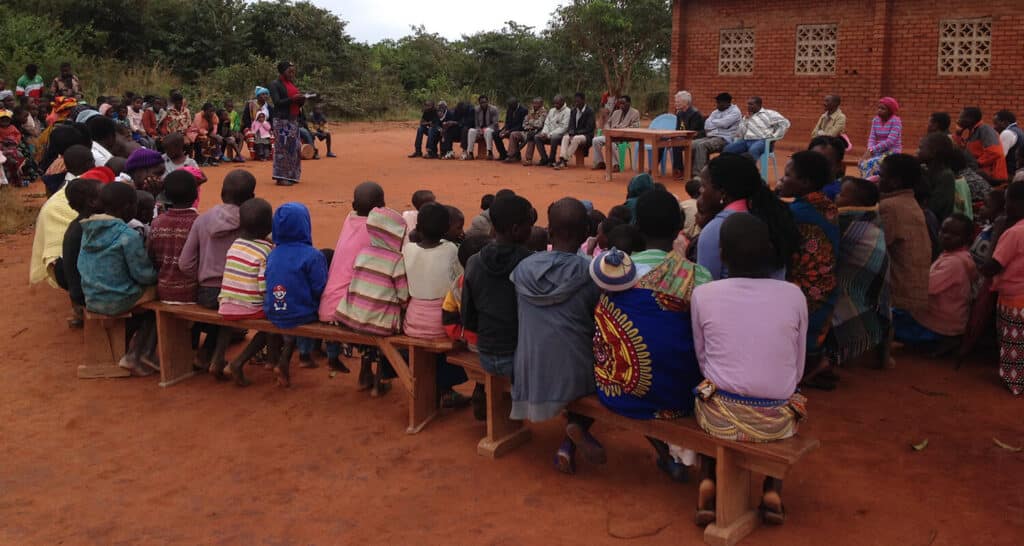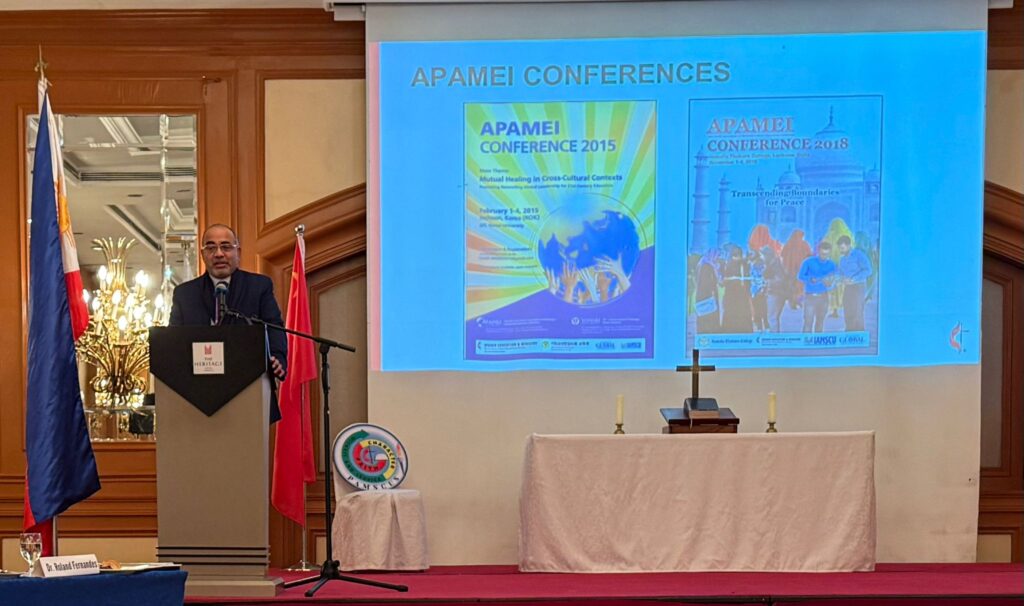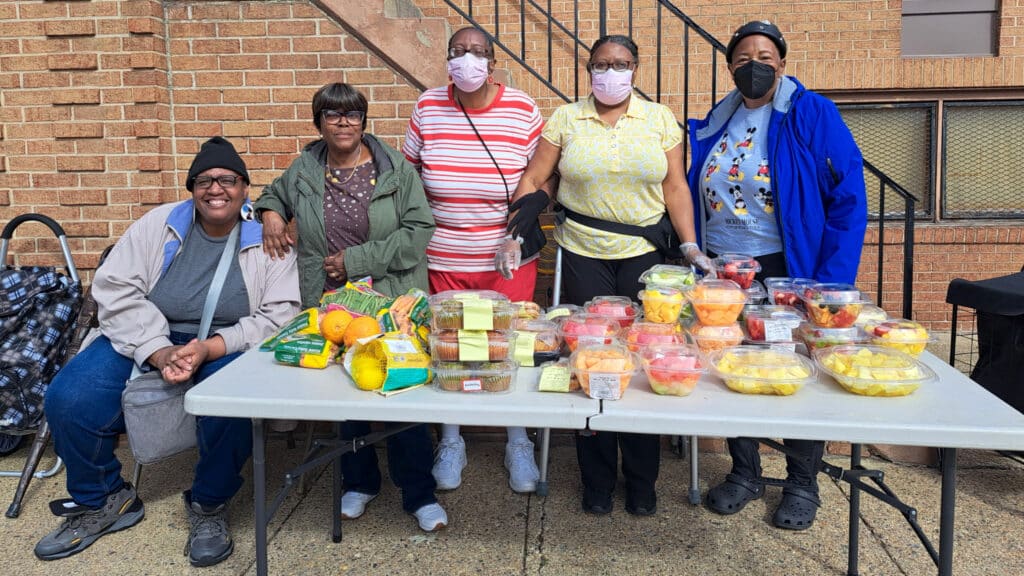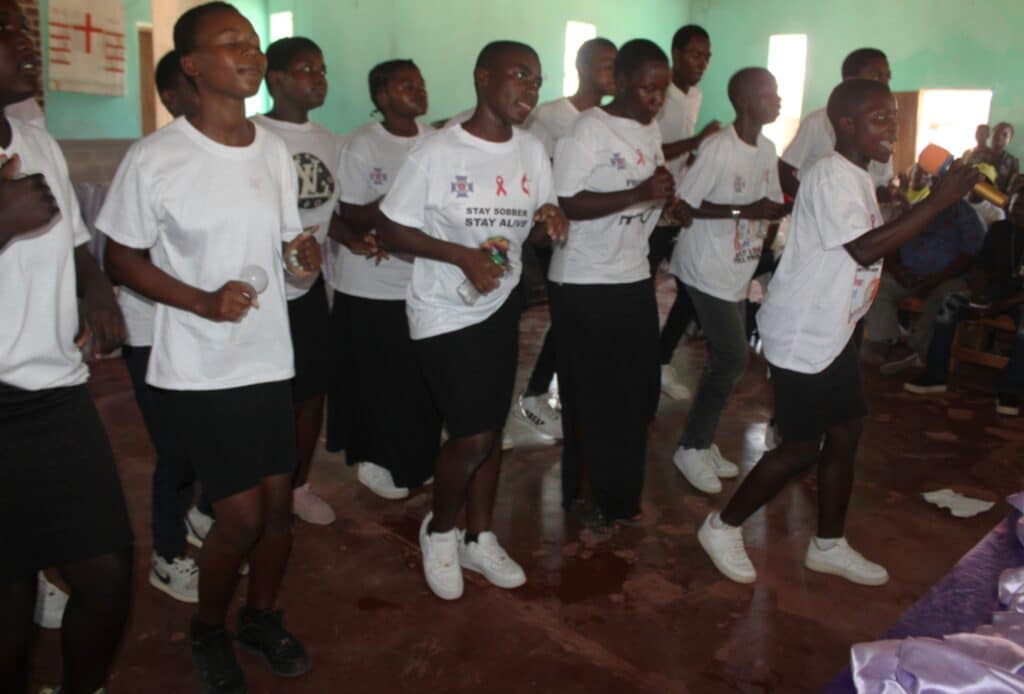By Kathleen Griffith
World AIDS Day is on Sunday, December 1st this year, but for 37 million people around the world, living with HIV and AIDS is an everyday reality. Millions who don’t know their status are at risk of infection or spreading infection, which also affects the millions they support and nurture through family and community life. The United Nations theme for World AIDS Day 2019 is “Communities make the difference.” Let’s remember our brothers and sisters as we meet on this special Sunday, the first day of Advent, and let us form the community that makes a difference for people living with AIDS.
Stop Stigma
People of every age group are affected by HIV and AIDS but in many places, young people are disproportionately affected. The Abundant Health Initiative supports small projects that reach out to young people through communities in the Democratic Republic of Congo, Ivory Coast, Malawi, Sierra Leone, the Philippines, Zambia, Zimbabwe and the United States. Students in high school and college, pregnant teens, young people who share needles, those experimenting with sex or sexual orientation, rich and poor populations, rural and urban populations – all have sacred worth but are affected by our stigma and judgement. In communities where Global Health works, our partners hear: “Stigma keeps many of us from being tested and treated.…Fear of rejection keeps us hidden…To lose our community is to lose our lives.”
Stigma shuts the door to HIV counseling and testing for many. Fear of the results and fear of leaked information keeps trust levels low. In the silence, myths grow and infection spreads.
PJ is 19 years old and lives with HIV. He feared being tested for HIV and put it off. When he understood he was positive, he didn’t know what to do or what he’d say to his mother and brother. Staff members of Mary Johnston Hospital (Manilla, Philippines) helped him find treatment but also to find hope. They taught him that, with treatment, there is a good chance to live a long, healthy life. His family would come to understand and accept him again. PJ became a Peer Educator and a teacher of HIV101 in his local community. “I know the hospital staff are instruments of God to spread love, knowledge and awareness so that, soon, stigma and discrimination will be gone.”
According to “The Lancet,” the Philippines is facing the fastest growing HIV epidemic in the western Pacific, with a 174% increase in HIV incidence between 2010 and 2017. https://www.thelancet.com/journals/lanpub/article/PIIS2468-2667(18)30265-2/fulltext
On World AIDS Day 2017, staff of Kissy UMC Hospital and UMC school children joined a march through their capital – Freetown, Sierra Leone – to promote awareness about rising rates of HIV cases, especially among young people. The turnout was high. HIV testing booths were positioned along the route. The city’s mayor encouraged people to embrace those living with HIV. “Stigma must stop”, he said. “When stigma is reduced, there will surely be a reduction of HIV transmission.”
According to the Sierra Leone UMC Conference Health Board Coordinator, knowledge about HIV and AIDS in Sierra Leone is limited. The government has expanded access to services, but uptake has been poor. People are reluctant to know their status when treatment and support are lacking, and they face discrimination and social marginalization.
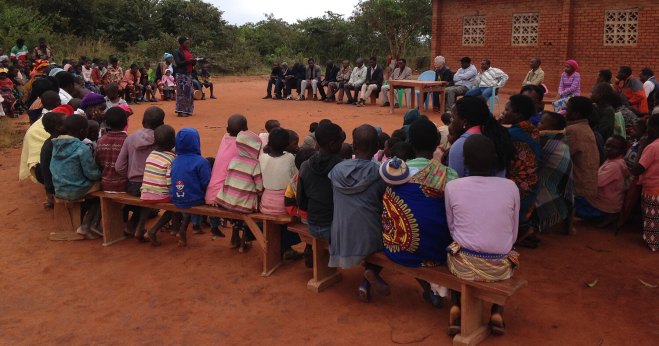
PHOTO: WORLDHOPE CORPS
Know and Go
Felister, a successful farmer and the mother of two HIV negative children in Malawi, is HIV positive. She and her husband were both positive when they married, but sadly, he abandoned her when their children were young. Though devastated, Felister started life all over again and has done very well. She is now rearing chickens and pigs. She also grows potatoes. She knows that being HIV-positive is not the end of life. Taking the medication properly is what makes her body strong. She attends clinic regularly and receives community support. Felister is determined to nurture her children and provide for them on her small farm in northern Malawi.
Felister’s community support for living with HIV included a Global Health and World Hope Corp partnership that raised awareness about HIV and the importance of getting tested, as well as Katete Hospital, where she receives her medications. One of the first steps for raising awareness in any community is to know what services are available and how to access them. Could your congregation become such a resource for someone in your community? Does your church have space to partner with a local clinic to provide an HIV “Know your status” event? Start with members of the congregation who are nurses, doctors, other health professionals or a parish nurse to explore possibilities with a local health clinic or hospital. See what develops.
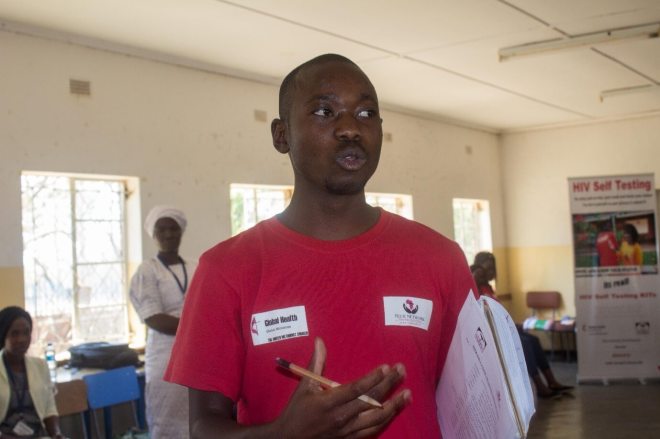
PHOTO: WORLDHOPE CORPS
Pray and Promote
Churches and communities can respond in many ways. Their leadership and advocacy keep people at the center. Pastors, church members, teachers, neighbors, peer educators, networks of people living with or affected by HIV – and you too – can make a difference through your prayers, welcome and love. People at risk for HIV infection may also experience mental health concerns and substance use disorder, leading to lowered inhibitions in relationships. Even loneliness and simply the need to be loved or connected with someone can lower inhibitions. Young people who have no place to stay may sometimes engage in risky sexual encounters in exchange for shelter and the cost of food.
Farai Danny Mhlanga is a Peer Educator at Africa University in Zimbabwe. In this role, he and his Peer Network have reached out to people of different cultures and traditions, people like themselves but also some who are marginalized with whom they wouldn’t normally associate. Together they’ve developed leadership and communication skills – like debate, dance, drama, music and public speaking – to engage young adults on this difficult subject. It has taught them to be the change Africa needs. It’s given them hope that this epidemic can be stopped.
